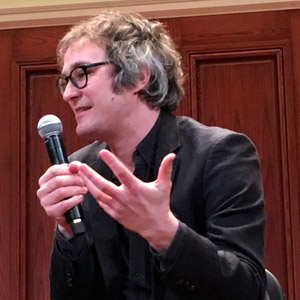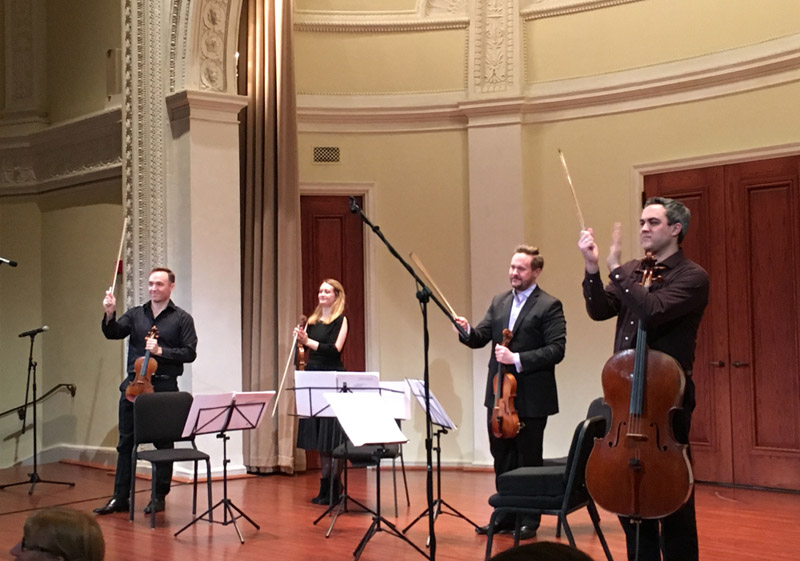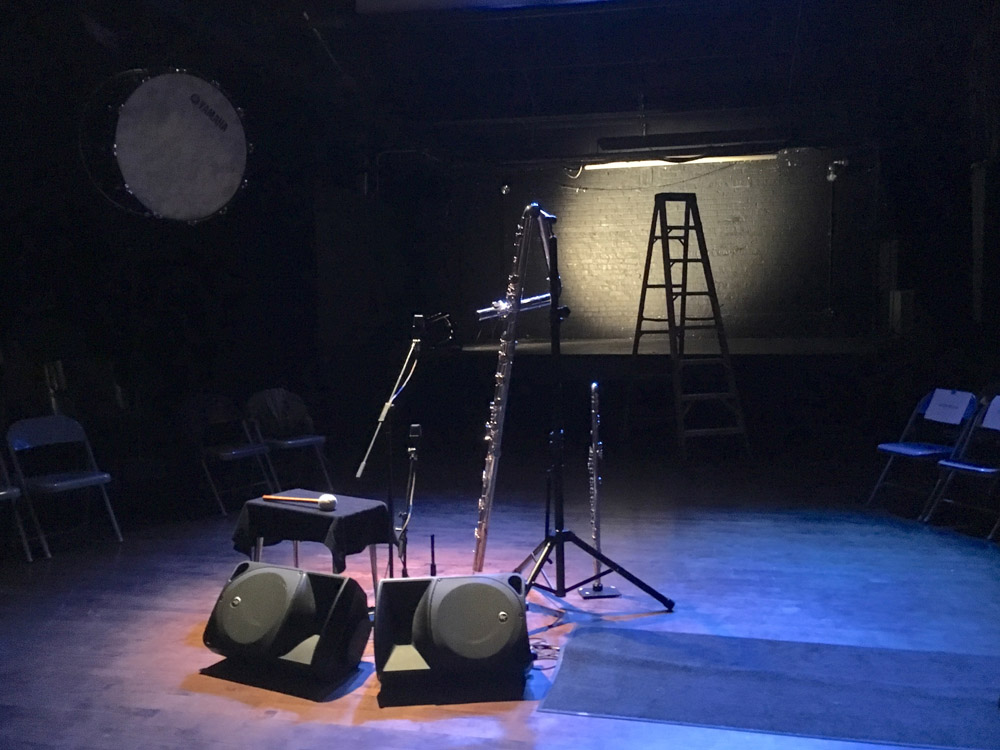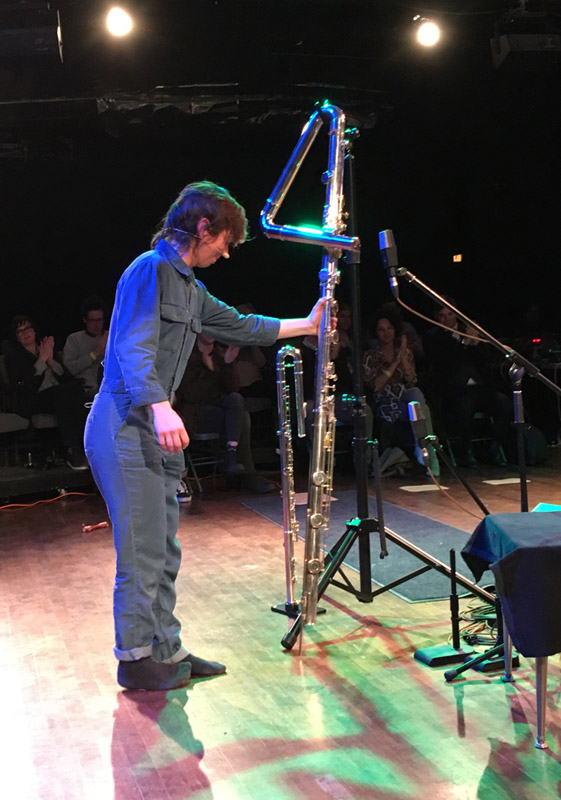“New music” seems to be catching on lately as a label for the stuff that we used to call “20th-century music.” Neither label really works, but what else should we call the new music composed for classically trained musicians? Whatever you call it, it’s thriving in Chicago these days, with a slew of talented ensembles, musicians and composers.
The Frequency Series, curated by Chicago Reader music critic Peter Margasak, has been presenting concerts of new music on Sundays at Constellation in 2013. Last week, Frequency went a step further, with the first Festival of Chicago New Music. I attended two of the concerts:
Flutist Claire Chase performed Saturday, Feb. 27, at Constellation — but billing her just as a “flutist” is hardly adequate to describe the scope of what she does. Chase, who is a founder of the International Contemporary Ensemble, began this concert standing on a ladder. Over the course of the show, she crawled, jumped and slithered around on the floor, coaxing unexpected sounds from her flutes — including an enormous contrabass flute (pictured below). She also spoke, reciting verse and text, making the whole performance feel like a blend of music and performance art, reminiscent of artists like Laurie Anderson.
This was the latest iteration of “Density 2036,” a 22-year project she launched in 2014 to commission an entirely new body of repertory for solo flute each year until the 100th Anniversary of Edgard Varèse’s groundbreaking 1936 flute solo, “Density 21.5.” Each season between 2014 and 2036, Chase will premiere a new 60-minute program of solo flute work commissioned that year. This concert included the titular work by Varese alongside new pieces by Dai Fujikura, Francesca Verunelli, Nathan Davis, Jason Eckardt and Pauline Oliveros. It was a strange and impressive spectacle.
The Spektral Quartet played Sunday, Feb. 28, at Fullerton Hall in the Art Institute of Chicago, performing two compositions that tested how far musicians can go with the idea of playing string instruments as quietly as possible. The first half of the concert was the premiere of Bagatellen, a sequence of nine short movements by German-born Chicago resident Hans Thomalla. Thomalla’s concept was to take musical fragments and use them as the germinative seeds for each of this pieces. Frankly, I’m not sure how much different that is from the typical way pieces of music originate. But whatever the theory is behind Bagatellen, it was a mesmerizing suite, with some passages so quiet that you had to strain to hear slight tones hiding inside the clicks, buzzes and hums of fingers and bows touching the instruments.
The second half of the concert was Austro-Swiss composer Beat Furrer’s String Quartet No. 3, which employed a similar dynamic range. I had trouble grasping what was going on in this composition. Spektral’s players showed virtuosity, but the music itself left me cold. As with so much “new music” — especially music without traditional melody, harmony and rhythm — it might take many listens to reach a fuller appreciation.
Members of the Spektral Quartet introduced the music with helpful explanations — even demonstrating some of the ideas with brief snippets on their instruments. And at the end of the concert, they sat down along with Hans Thomalla to answer audience questions.




